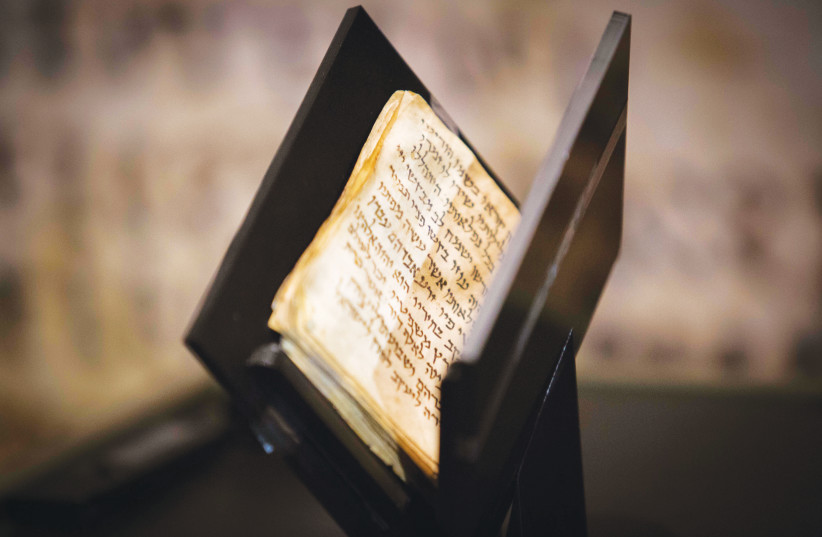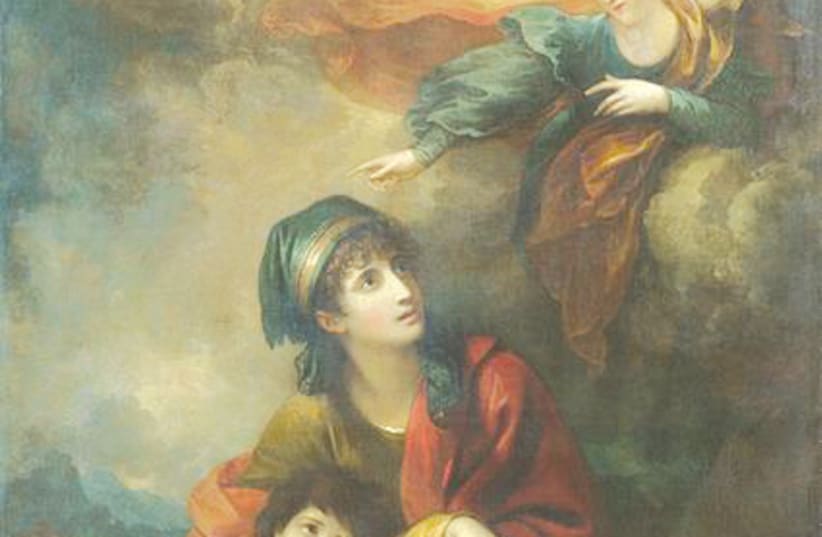The High Holy Days have a special universal Jewish character. On the High Holy Days, God blesses the entire world. Most of the prayers deal with the aspect and universal significance of prayer for humankind and the Jewish concept of tikkun olam, repairing the world. We are living in a time of a severe pandemic and a climate crisis that is threatening to annihilate the world. Hence the universal prayer for world peace appears to be highly appropriate and very relevant for the situation in which we find ourselves.
One of the most moving and challenging passages in the Torah reading for Rosh Hashanah, which actually represents the beginning of the High Holy Days, is the story of the expulsion of Hagar and Ishmael from Abraham’s home. Sarah, who fears that Ishmael will have a negative influence on Isaac, demands that Abraham remove them from their home. Hagar embarks on a difficult transformative journey in the desert. She is physically and mentally exhausted and at some point she runs out of water, falls into a state of despair, and throws her son under a bush. She sits far away so as not to see the child’s suffering and death, and “lifted up her voice and wept” (Genesis 21:16).
Lifting up one’s voice represents elevation and transformation – something spiritual and sublime. Her weeping is a kind of profound prayer from the depths of her soul that ascends higher and higher, all the way to the throne of honor. It is an inner cry and a sublime prayer that both activates and changes the world. Her weeping represents the culmination of human prayer, where a woman gives of herself and produces tears. Despair ostensibly plunges Hagar into an abyss and a sense of nonexistence, but at that very moment, in the midst of an eclipse when she has lost her way, she activates another spiritual agency reserved exclusively for women. As it is written in the Torah: “And God heard the voice of the lad” (Genesis 21:7). The weeping of a woman and a mother is profoundly shocking and God hears this special prayer, “And God heard the voice of the lad; and the angel of God called to Hagar out of heaven, and said unto her, ‘What aileth thee, Hagar? Fear not; for God hath heard the voice of the lad where he is…’” (21:7).
God commands her to exercise practical agency and tells her, “Arise, lift up the lad, and hold him in thine hand; for I will make him a great nation” (Genesis 21:18). God promises Hagar that if she gets up and picks the boy up and holds his hand, He will make him into a great nation. There is a sense of progression in this verse. In order for him to become a nation and a powerful empire, first of all Hagar herself must arise... God does not pick her up or lift her. Instead, He asks her to activate her own agency and arise. After she does so she will be able to pick up the boy. Her arising is not merely physical but also spiritual, and He asks her not to let go and leave the boy to his fate but rather, as a significant and responsible adult, to hold the boy’s hand and then… if the boy has the appropriate parental support he will recover and become a “great nation.”


Hagar’s process from expulsion to recovery has been a source of inspiration for many touching and moving plays, poems and works of art. The agency that she activates and is asked to activate brings her personal and universal redemption. And indeed, her own son does become the founder of a great nation.
Only after Hagar arises does God open her eyes “and she saw a well of water” (21:19). Even though the well was right there ... in her grief and depression she didn’t see it. Only when she activates agency, cries and arises is she able to see hope, water, a horizon and a new world.
Many commentators wonder how it is possible that God hears the voice of the boy Ishmael who committed such evil deeds that Abraham was forced to expel him. In his commentary on the Torah, Rabbi Shlomo Yosef Zevin writes that God hears the boy “where he is” (21:17) – God does not judge a person according to what he has done in the past or what he may do in the future. Instead, in his grace and mercy, God judges man according to his current situation – as he is here and now. This is a great measure of God’s grace, as well as an educational approach for us. If you see a person, do not judge them harshly according to their actions in the past. Instead, look at their current human situation – have mercy on them and help them, thus saving them and the world.
Every human being should be given a chance to redeem themselves and be pardoned. They should be seen and their voice should be heard, and then they will be able to arise and develop and become “a great and mighty nation.”
During these High Holy Days, may we take the opportunity to make a fresh start and regain our strength. This year, may we be “seen” and “heard” and may we too be privileged to see hope, salvation and redemption and overcome all the current obstacles that seem to be blocking our way at present so that we can be “a light unto the nations.”
The writer holds the UNESCO Chair for Values Education, Tolerance & Peace and heads The Sal Van Gelder Center for Holocaust Research & Instruction in the Faculty of Education at Bar-Ilan University.
